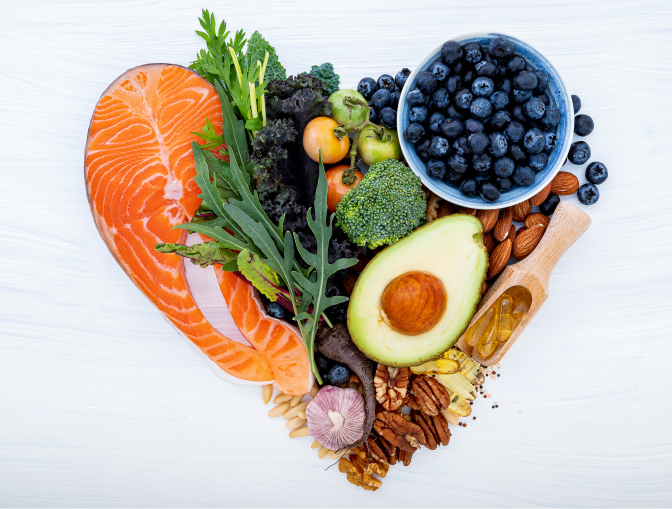Imagine your gut as a castle with strong walls that protect your body from unwanted invaders. When those strong walls are intact, foreign bodies cannot easily penetrate the gut lining. However, when you have a condition called leaky gut, those walls become damaged, allowing harmful substances to escape and wreak havoc in your body.
You might feel strange, uncomfortable symptoms– all because of a permeated gut. So if you want to learn more about how a leaky gut affects your health and what you can do to reclaim your gut wellness, we are here to guide you by letting you in on what we know about leaky gut.
What is a Leaky Gut and How Does it Impact Your Health?
The gut lining is made up of a single layer of cells that regulates what enters and remains in the bloodstream. When the gut is healthy, only nutrients are allowed to enter, keeping other harmful matter from passing through. But when the gut lining becomes more porous than usual, a condition called leaky gut, also known as intestinal permeability, occurs, compromising the integrity of the gut barrier.
The leaky gut syndrome comes with a wide array of symptoms including digestive problems like bloating, abdominal pain, and constipation; food sensitivities, fatigue, joint pain, skin issues, and even autoimmune disorders.
A leaky gut can be tricky to diagnose because mainstream medicine does not currently recognize it as a medical diagnosis. People who experience leaky gut syndrome often have difficulty figuring out their condition, even after going through different laboratories and tests.
But if you want to have an idea of whether or not you may have a leaky gut, check out these questions that could help you determine your condition– and if the answers correspond to you having a leaky gut, fret not, this guide is here to help you handle your leaky gut through one of the most effective ways possible– diet.

Revitalize your Gut Health with a Leaky Gut Diet
Gluten-Free Diet
Gluten is a notorious ingredient when it comes to triggering leaky gut. Numerous studies have shown that a gluten-free diet can result in a healthier, improved gut, like research in the Journal of Gastroenterology and Hepatology where it was found that a gluten-free diet reduced gut inflammation and improved intestinal barrier function in patients with celiac disease, an autoimmune condition triggered by gluten consumption.
By eliminating gluten, a trigger for gut inflammation and damage, one reduces the risk of a permeated intestine and improves gut symptoms.
Low-Inflammation Diet
Simply put, a low-inflammation diet is one that involves avoiding inflammatory triggers such as processed foods, refined sugars, and unhealthy fats. Since leaky gut and inflammation are closely linked, it is beneficial to prevent the latter in order to heal one’s leaky gut.
A low-inflammation diet entails eating whole foods that include fruits, vegetables, grains, legumes, and healthy fats. Essentially, this diet aims to consume less processed, fatty foods and more lean, nutritious foods.
Dairy-Free Diet
Just like gluten, dairy products are known to increase gut porosity when its protein component, casein, is broken down in the digestive system. Excessive dairy consumption may lead to a damage in the intestinal lining, therefore contributing to the symptoms of a leaky gut.
Foods to avoid in a dairy free diet include milk and milk products, whey, lactose, processed foods, processed meats, and other milk derivatives.
Although the diets mentioned above would require us to let go of the foods that we usually enjoy, it is essential to maintain discipline and keep ourselves away from unhealthy substances and ingredients that could further harm our gut.
When our gut functions properly, so does the rest of our body- which is why a revitalized gut could really do wonders in improving the way we feel about our health and our bodies.

Foods to Eat for Gut Healing
High-Quality Protein
Vegetables and Fruits
A diet rich in vegetables and fruits are widely recognized as being beneficial for persons suffering from a leaky gut. These foods are an excellent source of fiber, vitamins, minerals, and antioxidants, all of which can contribute to improved gut health and overall well-being.
Adequate fiber intake is also especially important for promoting healthy digestion and regular bowel movements, which can reduce inflammation and support optimal gut function.
Fermented Food
Healthy Fats
Healthy fats are an essential component of a gut-healing diet, especially for those suffering from leaky gut. Rich sources of healthy fats include fatty fish, seeds, nuts, avocados, and olive oil.
These foods are loaded with omega-3 fatty acids, monounsaturated and polyunsaturated fats, and antioxidants, which have been shown to reduce inflammation, support gut healing, and improve overall health.
Bone Broth
Bone broth has been used for centuries as a healing elixir for various ailments, including gut health. The broth is made by simmering bones and connective tissue from animals, typically beef or chicken, for an extended period of time, which extracts the nutrients and minerals from the bones into the liquid.
One of the key nutrients found in bone broth is collagen, a protein that helps to maintain the integrity of the gut lining. Consuming collagen-rich bone broth has been shown to help repair and strengthen the gut lining, which can reduce inflammation and improve overall gut health.
In addition to collagen, bone broth is also rich in amino acids, such as glycine and proline, which can help to reduce inflammation and support the growth of beneficial gut bacteria. It’s also a good source of minerals like calcium, magnesium, and potassium, which are important for maintaining optimal gut function.
Probiotics and Prebiotics
Probiotics and prebiotics are both important for maintaining optimal gut health which you can incorporate into your leaky gut diet.
Probiotics are live microorganisms that can provide health benefits when consumed in adequate amounts. They are commonly found in fermented foods and can help to increase the abundance of beneficial bacteria in the gut, which can improve digestion, boost the immune system, and reduce inflammation.
Prebiotics, on the other hand, are non-digestible fibers that serve as food for the beneficial bacteria in the gut. They are found in a variety of plant-based foods such as garlic, onions, leeks, asparagus, bananas, and chicory root.
By consuming prebiotics and probiotics, you can help to nourish the good bacteria in the gut and support their growth and activity. If you’re looking for a solution to improve your digestive wellness, you might want to check out the revolutionary MegaSporeBiotic from Microbiome Labs, a trusty probiotic supplement that’s specifically designed to support and promote gut health.
Gut Healing Supplements

Foods to Avoid for Improved Gut Health
Antibiotics
Many studies have provided that antibiotics alter and disrupt the gut bacterial diversity, which in turn results in the reduction of beneficial gut bacteria and weakening the integrity of the intestinal barrier.
Processed foods and refined sugars
Processed foods often contain additives, preservatives, and artificial ingredients that have the potential to irritate the gut lining and cause inflammation. Furthermore, the consumption of processed foods is frequently associated with a high intake of refined sugars. These sugars can nourish harmful bacteria in the gut, promoting the growth of yeast and other potentially pathogenic microorganisms.
The balance of gut bacteria can be further disrupted by refined sugars, which can exacerbate the development of a leaky gut. Studies have shown that diets high in refined sugars can increase intestinal permeability and inflammation, thereby worsening leaky gut symptoms.
High-sugar fruits
Alcohol and caffeine
It is important to note that both alcohol and caffeine can have negative impacts on the gut, potentially worsening the condition of a leaky gut.
Alcohol, for instance, can increase the permeability of the intestines and cause inflammation in the gut. This, in turn, can weaken the intestinal lining, leading to the worsening of leaky gut symptoms. Alcohol also affects the balance of gut bacteria, leading to the disruption of the gut microbiome, which is crucial for maintaining optimal gut health.
On the other hand, caffeine can cause inflammation in the gut, causing irritation in the digestive system. It can also stimulate cortisol production, leading to stress and further disruption of the gut microbiome.

Frequently Asked Questions with Leaky Gut Diet
Are there any risks associated with the Leaky Gut Diet?
Eliminating entire food groups can lead to nutrient deficiencies, so it’s crucial to make sure you are getting all the necessary nutrients from other sources. Additionally, some supplements recommended for a leaky gut diet may interact with medications, so it’s always best to consult with a healthcare professional before taking any supplements.
Does the Leaky Gut Diet help with chronic diseases?
While the leaky gut diet can certainly reduce inflammation and promote healthy digestion, it’s important to keep in mind that it may not necessarily be a cure-all for chronic diseases. Chronic diseases are complex and multifaceted, and managing them often requires a personalized and comprehensive approach.
That’s why it’s crucial to work closely with a healthcare professional specializing in integrative, holistic, functional medicine to develop a treatment plan that’s tailored to your unique needs and takes into account all aspects of your health. While the leaky gut diet may be a beneficial component of such a plan, it’s important to approach it as just one part of a larger strategy for managing chronic disease.
How long should I follow the leaky gut diet?
It is best to stay on track with foods you should consume and avoid to prevent recurring issues and ultimately put a stop to your leaky gut.
How can I heal leaky gut syndrome fast?
-
Avoid irritants – Cut out sugar, gluten, dairy, alcohol, and processed foods.
-
Eat healing foods – Include bone broth, fermented foods, and fiber-rich veggies.
-
Take supplements – Use probiotics, L-glutamine, and digestive enzymes.
-
Reduce stress – Try meditation, deep breathing, or light exercise.
-
Sleep well – Get 7–9 hours of quality sleep daily.
Consistency is key. Consult a doctor for best results.

